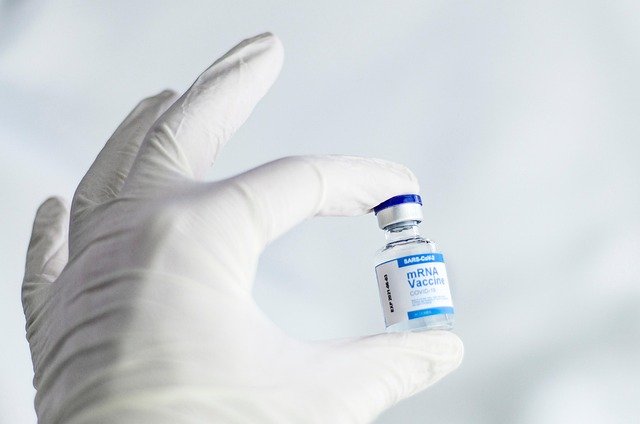Guide to Medical Marijuana Trials and Types of Studies You Can Join
Medical marijuana is being studied worldwide to better understand its benefits and risks. Some trials offer payment to participants. This guide explains how paid medical marijuana trials work, what types of studies exist, and what participants should consider before joining.

What Paid Medical Marijuana Trials Typically Involve
Medical marijuana trials follow standardized research protocols designed to gather specific data about cannabis products, their effects, and potential therapeutic applications. Most paid studies include screening processes where researchers evaluate potential participants through medical examinations, interviews, and questionnaires. Once accepted, participants typically receive cannabis products in precisely measured doses and forms—ranging from oils and tinctures to inhalable products or pills—depending on the study design.
Participation often requires regular clinic visits for monitoring, completing symptom journals, providing biological samples (blood, urine, saliva), and undergoing various assessments. Compensation structures vary widely based on study duration, invasiveness, and time commitment. Most trials provide modest stipends ranging from $25-75 per visit to cover transportation costs and time, with longer or more intensive studies offering higher compensation. Importantly, these studies prioritize scientific validity over treatment outcomes, meaning participants must adhere strictly to research protocols rather than adjusting their medication as they might in typical treatment settings.
Who Is Eligible to Join Medical Marijuana Trials
Eligibility criteria for medical marijuana trials vary significantly depending on research objectives. Most studies target specific conditions where cannabis shows therapeutic promise, including chronic pain, epilepsy, multiple sclerosis, PTSD, cancer-related symptoms, and inflammatory conditions. Age requirements typically range from 18-65, though some studies focus specifically on pediatric or geriatric populations.
Researchers generally exclude individuals with certain medical conditions that could complicate results, such as serious psychiatric disorders, pregnancy, substance use disorders, or conditions that might interact negatively with cannabis. Many studies require participants to either be cannabis-naïve or willing to abstain from cannabis use outside the study protocol. Geographic limitations also apply, as participants must typically live within reasonable proximity to research facilities for regular visits. Most importantly, trials require participants who can consistently follow study protocols, attend scheduled appointments, and maintain accurate records of their experiences.
Types of Clinical Studies: Safety and Efficacy and Long-Term Research
Medical marijuana research encompasses several distinct study types, each serving different scientific objectives. Phase I safety trials primarily assess how the body processes cannabis compounds and identify potential side effects, typically involving small groups of healthy volunteers. Phase II efficacy trials evaluate whether cannabis treatments work for specific conditions and determine optimal dosing ranges, involving moderate-sized groups of patients with the target condition.
Phase III large-scale clinical trials compare cannabis treatments against existing therapies or placebos in substantial patient populations, generating data required for FDA approval. Observational studies monitor cannabis users without intervention, tracking outcomes over time to identify patterns and associations. Long-term research follows participants for months or years to detect delayed effects, tolerance development, or lasting benefits. Specialized mechanistic studies investigate precisely how cannabis compounds interact with body systems at cellular and molecular levels.
Important Considerations: Risks and Commitments and Ethics
Participating in medical marijuana research requires careful consideration of potential risks and commitments. Physical risks include possible adverse effects ranging from mild (dry mouth, dizziness) to more serious (anxiety, impaired cognition), and unknown long-term impacts. Legal considerations remain complex despite growing state-level legalization, as federal law still classifies marijuana as a Schedule I controlled substance.
Time commitments vary significantly between studies—some requiring only occasional visits over weeks, while others demand regular attendance for months or years. Privacy concerns also merit attention, though confidentiality protections in research are robust. Ethical frameworks governing these studies include informed consent requirements, voluntary participation principles, and oversight by Institutional Review Boards that evaluate risk-benefit ratios. Participants must understand they may receive placebos in controlled trials, and that research participation differs fundamentally from personalized medical treatment.
Types of Trials You Can Join and Its Benefits
Prospective participants can access diverse study types offering different experiences and benefits. Treatment trials test specific cannabis formulations for managing medical conditions, while prevention trials examine cannabis compounds’ potential to prevent disease progression or recurrence. Natural history studies track how conditions evolve with or without cannabis intervention over time. Cross-sectional studies gather one-time information from participants at different disease stages.
Benefits of participation extend beyond potential compensation. Many participants gain access to cutting-edge treatments before public availability and receive comprehensive medical monitoring that might otherwise be unaffordable. Contributing to scientific advancement offers personal satisfaction, while some participants develop deeper understanding of their own conditions through research involvement. Studies often provide education about cannabis, its effects, and proper usage guidelines. For some with limited healthcare access, research participation provides valuable medical attention and assessment.
Conclusion
Medical marijuana trials represent an evolving frontier in clinical research, offering both scientific value and potential therapeutic options for participants. Understanding the types of available studies, eligibility requirements, and participation expectations helps prospective volunteers make informed decisions about involvement. While these studies carry inherent risks and commitments, they also present opportunities to access novel treatments and contribute meaningfully to medical knowledge. As cannabis research continues expanding, participant engagement remains essential for advancing evidence-based understanding of this complex plant medicine.
This article is for informational purposes only and should not be considered medical advice. Please consult a qualified healthcare professional for personalized guidance and treatment.




